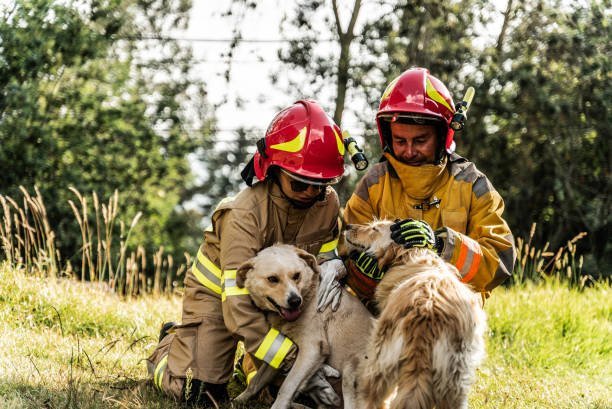Can I adopt a specific dog breed through a rescue organization?

Introduction:
In this article, we embark on a quest to answer a common and heartfelt question among dog enthusiasts: “In this article,” we explore the possibility of adopting a specific dog breed through a rescue organization. While many individuals have a deep affinity for particular dog breeds, they may wonder if rescue organizations can fulfill their desire to provide a loving home for a breed of their choice.
The journey of adopting a dog is a significant and meaningful one, and it’s essential to understand the dynamics of breed-specific rescue efforts, the factors that influence breed availability, and the steps you can take to find the perfect canine companion. By delving into this topic, we aim to provide clarity and guidance for those seeking to open their hearts and homes to a specific breed while also supporting the noble mission of rescue organizations dedicated to finding loving homes for dogs in need.
Research breed availability in local rescue organizations:
To ensure you can adopt a specific dog breed through a rescue organization, begin by conducting thorough research on the availability of the breed in your local area. Start by searching online and checking the websites of local rescue organizations. Many of them list the dogs they currently have available for adoption, along with their breeds. You can also reach out to these organizations via phone or email to inquire about the availability of the specific breed you’re interested in.
It’s important to note that the availability of specific breeds in rescue organizations can vary widely depending on your location. Popular breeds may be easier to find, while rarer breeds might require more patience and a broader search radius. By doing this research, you can get a better idea of whether the breed you desire is currently available for adoption in your area, helping you make an informed decision about adopting through a rescue.
Assess your suitability for the chosen dog breed:
Once you’ve identified the availability of the specific breed you want to adopt, the next step is to assess whether you are a suitable match for that breed. Different dog breeds have distinct characteristics, including size, energy level, temperament, and grooming needs. Take the time to research the breed’s traits thoroughly and consider whether they align with your lifestyle, living situation, and personal preferences.
For example, if you’re interested in adopting a high-energy breed like a Border Collie, you should be prepared for regular exercise and mental stimulation. If you’re looking for a smaller, low-maintenance breed like a Chihuahua, your living space and daily routine should accommodate their needs. It’s crucial to be honest with yourself about your ability to meet the breed’s requirements, as this will ensure a successful adoption and a happy life for both you and the dog.
Contact breed-specific rescue:
To proceed with adopting a specific breed, reach out to breed-specific rescue organizations. These groups specialize in rescuing and rehoming dogs of a particular breed, and they can provide you with valuable information about the adoption process. Contact them through their websites, email, or phone numbers, and inquire about their adoption procedures, fees, and any specific requirements they may have for adopting a dog of your chosen breed.
Breed-specific rescue groups often have a deep knowledge of the breed’s characteristics and can help match you with a dog that suits your preferences and lifestyle. They may also have a waiting list or upcoming adoption events where you can meet available dogs. Engaging with these organizations will give you a better chance of adopting the specific breed you desire while ensuring that the adoption is carried out responsibly and ethically.
Prepare for the adoption process and requirements:
Before adopting a specific dog breed through a rescue organization, it’s essential to be well-prepared for the adoption process and understand the requirements involved. Typically, rescue organizations have a set of procedures and criteria to ensure that their dogs are placed in suitable homes. These requirements may include filling out an adoption application, providing references, and undergoing a home visit.
To prepare, start by gathering the necessary documentation and information. This may include proof of residence, landlord approval (if you rent), and personal references who can vouch for your suitability as a pet owner. Be honest and transparent in your application, as rescue organizations prioritize the well-being of their dogs. Additionally, budget for adoption fees and ongoing expenses, such as food, grooming, and veterinary care, to ensure you can provide for your new pet.
Preparing your home is equally important. Puppy-proof or dog-proof your living space, removing potential hazards and ensuring that the environment is safe and comfortable for your future pet. Set up a designated area with the necessary supplies, such as food and water bowls, a comfortable bed, and appropriate toys. Being well-prepared streamlines the adoption process and increases your chances of being approved to bring a specific breed into your home.
Consider alternative breeds:
While you may have your heart set on a specific dog breed, it’s crucial to remain flexible and open to considering alternative breeds if your desired breed is unavailable through rescue organizations. Breed availability in rescues can vary based on factors such as location, time, and demand. Some popular breeds may have long waiting lists, while others might be readily available.
To ensure you find a dog that suits your lifestyle and preferences, research and familiarize yourself with breeds that share similar characteristics with your desired breed. For instance, if you were initially interested in a Golden Retriever but cannot find one in rescues, you might explore Labrador Retrievers or other friendly, medium-to-large breeds known for their sociable nature.
Remember that mixed-breed dogs can also make wonderful companions and are often in need of homes. By keeping an open mind and considering alternative breeds, you increase your chances of finding a loving canine companion that aligns with your lifestyle and preferences.
Ensure a smooth transition for your adopted dog:
Once you’ve successfully adopted a specific dog breed through a rescue organization or have found a suitable alternative, the next critical step is ensuring a smooth transition for your new pet. Transitioning into a new home can be stressful for dogs, and it’s essential to make the adjustment as comfortable as possible.
Begin by providing a consistent routine. Dogs thrive on predictability, so establish a regular schedule for feeding, exercise, and bathroom breaks. Create a safe and comfortable space in your home where your dog can retreat when they need a break or some quiet time.
Socialization and training are also key components of a smooth transition. Expose your dog to different people, places, and experiences gradually to help them become well-adjusted and confident. Positive reinforcement-based training can help you build a strong bond with your dog and address any behavioral issues that may arise.
Prioritize your dog’s health and well-being by scheduling a vet visit soon after adoption to address any medical concerns and ensure they are up to date on vaccinations and preventive care.
Conclusion:
I hope this exploration of adopting a specific dog breed through a rescue organization has shed light on the steps and considerations involved in this process. While finding your dream breed through a rescue can be a rewarding experience, it’s essential to be flexible and prepared.
First, research the availability of your desired breed in local rescues, and assess your suitability for that breed’s unique needs. Prepare for the adoption process by gathering necessary documents and ensuring your home is pet-friendly.
However, if your preferred breed isn’t readily available, be open to considering alternatives. Many wonderful dogs of various breeds and mixed breeds are looking for loving homes.
By following these steps and being patient and adaptable, you can increase your chances of finding the perfect companion while providing a loving forever home for a rescue dog in need.










Post Comment